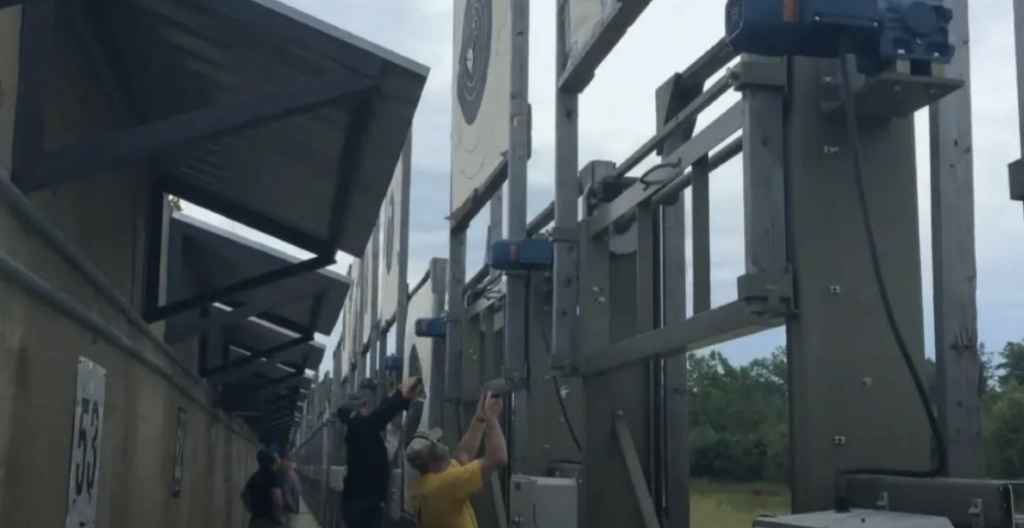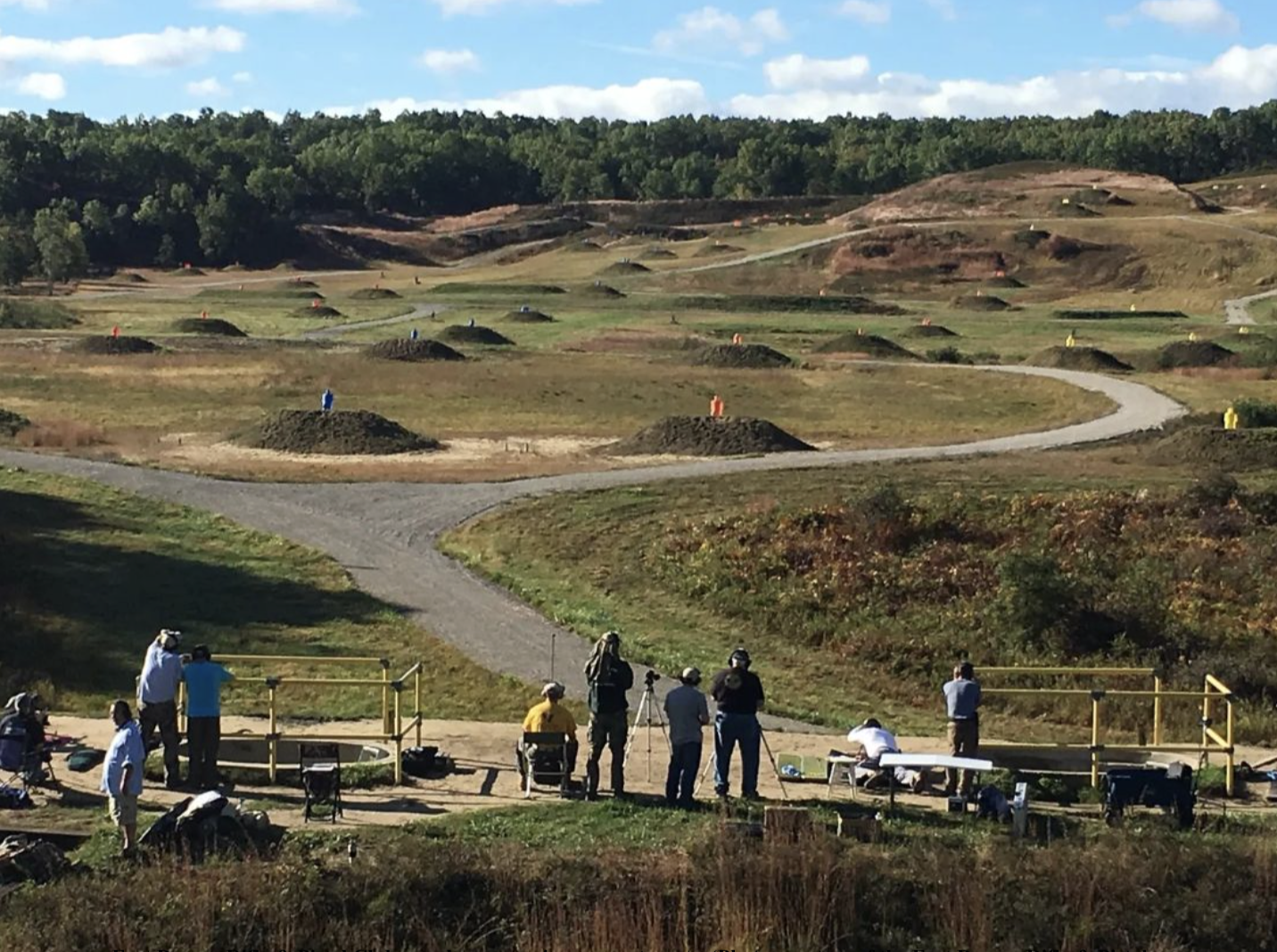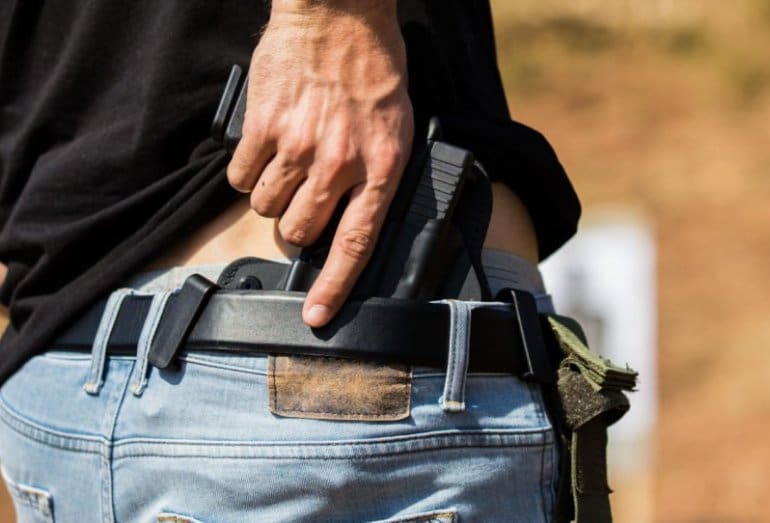By Lee Williams
A small civilian gun club located just 50 miles northwest of Boston has won a “landmark” lawsuit against nearby Fort Devens for violating their rights and federal law by denying them access to military rifle ranges at reasonable rates.
The Ft. Devens Rifle & Pistol Club, Inc., filed suit in 2022 claiming that Fort officials were charging range fees in violation of federal law, according to club treasurer Jim Gettens, a retired attorney who assisted with the legal fight.
Gettens said Monday that his club’s victory was a major “David vs. Goliath” event.
“They were running an illegal profiteering racket,” he said. “That’s the best way to describe it. This was a landmark case.”
Gettens and other club members noticed that their problems with the range began only three days after Joe Biden took office in 2022, which they said would never have happened under President Donald Trump’s Administration.
At issue was a little-known section of U.S. code that requires the Army to make rifle and pistol ranges available for civilian use as long as it does not interfere with military training, and it prohibits officials from charging exorbitant fees for range access.
Another federal statute requires the Army to provide logistical support to the Civilian Marksmanship Program. The Fort Devens Rifle & Pistol Club, Inc., is an affiliate of both the Civilian Marksmanship Program and the National Rifle Association.
For decades prior to the 2020 election, club members had been using a wide array of rifle and pistol ranges at Fort Devens free of charge. Club members supplied their own targets, ammunition, Range Safety Officers and other supplies. They even policed their own brass. Most of the club members are veterans, so they are intimately familiar with range safety protocols and other best practices. To be clear, in terms of taxpayer dollars, the club cost the Fort very little, which is why club member were so surprised when the Fort began charging them.
Just days after the 2020 election, the club was notified in writing that they would have to start paying a minimum of $250 per range, and that the fees would increase based upon the total number of shooters.
The bottom line was that Fort Devens tried to charge personnel costs for Range Safety Officers and technicians who were never there. In addition, a range staff member admitted in a memorandum that the range was unable to prove maintenance, supply and repair costs because the Fort never kept any such records.
“The odds were certainly stacked against us,” Getten said Monday. “As it turned out, the U.S. Army Garrison at Fort Devens croaked themselves with their own administrative records. A range officer filed a memo for the record admitting they kept no maintenance, supply or repair records – one of the most egregious abuses. We detailed all of this stuff in a memorandum in support for summary judgement. We just destroyed them.”
While the gun club won and can stop paying fraudulent fees, hundreds of civilian police officers are still charged for their time at the range, which Getten said is a legal problem for their agencies.
“Non-DoD law enforcement officers, state police and municipal police departments are still paying out the wazoo for all of those costs,” Getten said. “Non-DoD law enforcement agencies should not be getting hosed the way they are. Also, ICE, FBI, U.S. Customs and other federal law enforcement agencies pay out the wazoo for their range time and pass the costs onto taxpayers.”
Assistant U.S. Attorney Julian N. Canzoneri, who defended the government against the gun club’s lawsuit, did not return phone calls or emails seeking his comments for this story.

The Second Amendment Foundation’s Investigative Journalism Project wouldn’t be possible without you. Click here to make a tax-deductible donation to support pro-gun stories like this.








BREAKING NEWS: ATF Wins 7-2 Landmark Supreme Court Battle Over Gun Frames & Receivers
https://www.youtube.com/watch?v=M6CEB3lh9nU
So we are bringing Chevron back now? Ah well more shit to fight out after I get to where PA happens to be law wise.
well, its not chevron at play here. Its that 7 at SCOTUS didn’t see the APA being violated and APA was the case was basically about.
The case wasn’t argued on 2A grounds, so we re-group, re-file, and re-argue on 2A grounds, using the ‘Bruen’ standard…
I worked at a National Guard training base in the Department of Public Works and was involved in large maintenance and repairs of range facilities. This issue recurs as new staff members are rotated into Range Control positions and institutional knowledge is lost. We are a taxpayer supported installation. Not only can we not post a profit, we are forbidden from charging sliding scale fees. I’m a little rusty from the last time I cited the regulation, but there is a standard fee that is allowed to be charged to non-DoD users and it is trivial. It truly depends on the expected maintenance (wear-and-tear) and utility costs. It is a little higher on buildings due to maintenance and power. However, ranges typically do not have water and sewer. The utility usage is trivial, especially during daytime use. Several years ago when I last referenced the charts, daily use was $15-25 per day.
Our challenge in working with local law enforcement and community groups is that National Guard and Reserve units generally use the ranges and maneuver areas on weekends. However, if a gun club wanted to use the sniper range on a weekday, have it. During GWOT mobilization activities. we were busy 7 days a week.
The sheriff’s range here charges:
$10 a day or $30 for an annual membership.
Veterans use the range free.
Rarely is there some other agency using the range which prohibits public usage on those days or partial days.
We were spoiled until a year ago when the new sheriff made a few changes. Now we have to carry a target sign/holder and afterwards pick up brass(that we can see easily) and return the target sign/holder back to the rack.
I have no fees to pay since I am a veteran. I do bring the officers on duty some sweets from time to time. There is actually 4 ranges composed of pistol and long gun ranges.
Oh, lucky us!
The 1968 “Gun Control Act” receives standIng in the USSC and Wins. Why?Because in a time when historical analogies matter in court the historical dirt on Gun Control is kept out of sight and out of mind. And who is to blame for allowing an agenda History Confirms is Rooted in Racism and Genocide to set the pace?….could it be zipped lipped gutless wonders who bark at citing the History of Gun Control for the public, courts, etc? You know who you are.
https://www.youtube.com/watch?v=M6CEB3lh9nU
Majority of Federal Gun Confiscations Are NOT for Criminal Acts.
https://www.ammoland.com/2025/03/majority-of-federal-gun-confiscations-are-not-for-criminal-acts/
Trump Administration Freezing Planned Parenthood Funding for Review, and That May Not Be All.
https://townhall.com/tipsheet/rebeccadowns/2025/03/26/trump-freezing-planned-parenthood-funding-for-review-n2654487
https://x.com/charliekirk11/status/1904589468201607520
”
…Between 2019-2021, Planned Parenthood performed 1.11 million abortions while receiving approximately $1.78 billion in federal funding. This is an average of $592 million every year or over 40% of their revenue. …
…”
Undercover Video of Top-Level Planned Parenthood ADMITTED to Selling Organs of Babies.
https://x.com/MJTruthUltra/status/1904635832914292784
President Trump says he’s going to look into Planned Parenthood Criminal Actions regarding Baby Organ Harvesting.
https://x.com/MJTruthUltra/status/1904630830091108385
Oh man, this is just going to bubble up. Better buckle up, the ride could get rough. And make sure you have an airsickness bag or three nearby. When the evidence comes out, you might just need to vomit.
Who got the $?
From conversations with other, senior, Depth of Civilian Marksmanship (yes, I’m old) club officials, one of the unstated reasons for federal support of DCM clubs was to build a cadre of rifle and pistol instructors for use in case a general mobilization like in WWI ans WWII was ever again needed.
The first stated purpose, of training young people as marksmen and interesting them in military service is the daily goal, but the senior non-coms who would staff the ranges are the same ones who would otherwise keep their squads of new troops alive in combat.
Us old farts can’t do that, but we can teach.